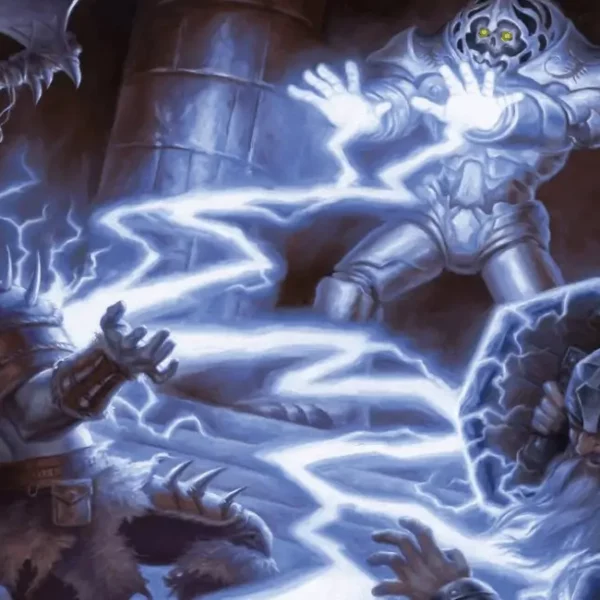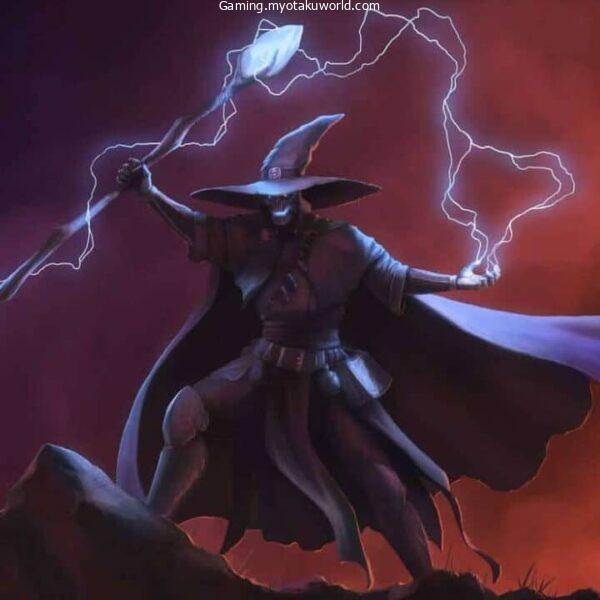The ability to instantly treat a variety of crippling symptoms in the middle of fighting is precisely the purpose for which Lesser Restoration is designed.
It’s a one-time spell that allows allies to get back into combat immediately.
The guidelines of Lesser Restoration can be found in the Players Handbook on page 255.
- Lesser Restoration 5e
- Who can cast lesser restoration in 5e?
- What does Lesser Restoration do?
- Who can i target with lesser restoration 5e?
- Can Lesser Restoration Cure Curses?
- Can You Use Lesser Restoration on Yourself?
- Greater Restoration, Lesser Restoration, and Curse Removal
- Is lesser restoration 5e a good spell?
- Lesser Restoration 5e compared to Greater Restoration
- Final Words
Lesser Restoration 5e

- Abjuration: 2nd Level
- Time to Cast: 1 Action
- Touch: Range
- Components: V, S
- Duration: Instantaneous
If you touch a creature, it could bring about the end of one disease or one condition that it is suffering from. The condition may cause blindness or deafness, paralysis, or even poisoning.
The rules of the Lesser Restoration clearly define its intent. It can be used to eliminate any disease or condition that affects the same creature.
This is a unique situation; however, it is often very significant, especially in the midst of a potentially dangerous conflict.
Who can cast lesser restoration in 5e?
The spell list of the following classes contains the ability to cast Lesser Restoration:
The following subclasses are exempt from paying for the cost of Lesser Restoration:
Beginning at level 9, Alchemist Artificers have the ability to cast Lesser Restoration without expending a spell slot or making any preparations for the spell.
Lesser Restoration has also been added to the list of spells that are available to Celestial Warlocks and Divine Soul Sorcerers.
What does Lesser Restoration do?
A Lesser Restoration is a spell that can end the symptoms of one disease or condition that affects an animal.
The spell description gives an overview of the conditions that can be affected. Blinded, deafened, paralyzed, or poisoned are some of the conditions that can be cured.
Any other condition or disease that isn’t affected by this spell will require a more powerful restoration spell to get rid of.
Lesser Restoration does not remove the effects of exhaustion. The description of the spell is specific to the conditions it affects. However, exhaustion is not mentioned.
Magical spells that are more powerful such as Greater Restoration can treat exhaustion.
Who can i target with lesser restoration 5e?
With Lesser Restoration, you can aim it at any living creature—including yourself—that you can physically touch. If you’re using a grid-based battle map, “touch” means that you have to be on a square that is adjacent to it.
Celestial Warlocks can use their Find Familiar ability to cast Lesser Restoration on an ally up to 100 feet away, as long as the familiar is within touch range of that ally.
Divine Soul Sorcerers can use the Distant Spell metamagic to extend the range of Lesser Restoration to 30 feet, and Divine Soul Sorcerers can use Find Familiar to cast Lesser Restoration on an ally up to 30 feet away.
Can Lesser Restoration Cure Curses?
Lesser Restoration cannot eliminate or treat curses, but only situations. The idea is that it is a holdover from earlier versions.
This Lesser Restoration spell is now less effective in 5e. It could offer temporary relief from the effects caused by the occult. It would be a DM’s choice.
The less restored condition doesn’t stop the condition from regaining its grip by casting it again.
Advanced magic techniques like Remove Curse or Greater Restoration are needed to deal with more complex situations.
A Lesser Restore spell in the spelling column you have prepared could seem like an unnecessary waste in most encounters.
The requirements listed are usually infrequent; however, they could be life-saving. These conditions cause hitting your enemy to be considerably more difficult or make it easier for enemies to strike you or your friends.
In the beginning, deciding on which spells to create isn’t always easy, especially when one option is only situational.
If later on, the capability to create the spell is in place, then it should be at the top of the list.
Can You Use Lesser Restoration on Yourself?
If you’re suffering from one of the ailments that Lesser Restoration can remove, you can cast the spell on yourself.
The spell does not require vision, so even if you’re blind it is still possible to utilize the spell.
The only way you won’t be qualified to benefit from this spell is if you’re not able to cast spells in any way.
Lesser Restoration is accessible at the beginning for players. However, that doesn’t mean it isn’t accessible earlier through NPCs.
Spells such as Lesser Restoration are great for temples as they aren’t widely available and are likely to be made available regularly. It is likely to be fairly inexpensive (for the adventurers) as a service.
Greater Restoration, Lesser Restoration, and Curse Removal
It is the Lesser Restoration spell that is the first chance casters get to heal the afflictions. As previously mentioned, the list of ailments that are covered by Lesser Restoration is small.
It can be cast quickly to eliminate any impairments that typically occur during the battle due to the negative effects of attacks and spells.
If the symptoms last or are more severe, greater power magic is likely required to get rid of these illnesses. This calls for spells like “Greater Restoration” and “Remove Curse.”
A Removal Curse is a spell that works exactly as its name suggests. Available at the third level, its impact could have been substantial.
It allows the caster to break a curse, which allows the character to break the cursed object to which they are attuned. It also permits the caster to end all curses on creatures.
Greater Restoration can be found on the 5th level. With positivity, it is possible to reduce the harmful impact.
Greater Restoration can heal the exhaustion stage as well as petrification, charm, and even break the attunement of cursed objects as well as remove one curse.
Repairing damage can be done to hit totals. As the spell’s effectiveness grows, so will the cost. To make Greater Restoration, you need 100 GP of diamond dust for each casting.
The removal of the curse does not take away any curse from the object when used to interrupt attunement. The item will remain in the Curse and will affect everyone who is attuned to it.
Is lesser restoration 5e a good spell?
Absolutely, the spell known as Lesser Restoration is useful. Although it has a limited number of applications and is not used very frequently in the early game, you should make sure that at least one member of your party possesses this spell so that they can use it whenever it is necessary.
It provides the opportunity for a hard-hitting ally to re-enter the fray, for a healer to get out of a sticky situation, or for the foolish member of the party who keeps setting off disease traps to continue living a life free from the repercussions of their curiosity.
Lesser Restoration 5e compared to Greater Restoration
Greater Restoration, which is a spell of the 5th level, has a more powerful effect than its lower-level counterpart, Lesser Restoration. Charms, petrifies, curses (including attunement to cursed items), ability score reductions, and effects that reduce the target’s hit point maximum are all removed from the target by this ability.
It does not, however, cure diseases or any of the other four minor conditions that are remedied by the Lesser Restoration. Because of this, Greater Restoration doesn’t really take the place of Lesser Restoration in any meaningful way. Instead, it expands on the effects of the lesser spell and enables a dedicated healer to cover (almost) all of their bases in terms of dealing with negative effects that have been placed on allies.
This third-level spell does exactly what it says it will do and nothing else. Remove Curse has no other effects. There is room in a healer’s toolkit for all three spells, and none of them will become unnecessary as you advance in level.
Lesser Restoration: (2nd-level, touch, V/S) Remove one of the following effects: disease, blind, deafen, paralyze, poison.
Final Words
This Lesser Restoration spell serves a need when there’s one.
It is dependent on the circumstances whether it is essential or not. It is difficult to judge how significant or useful it is.
If you can cast the spell without any major sacrifices, for instance, at a higher level, then it isn’t a bad idea. In lower levels, the results are more severe. However, spell slots are more limited.









